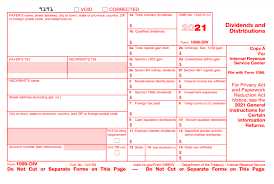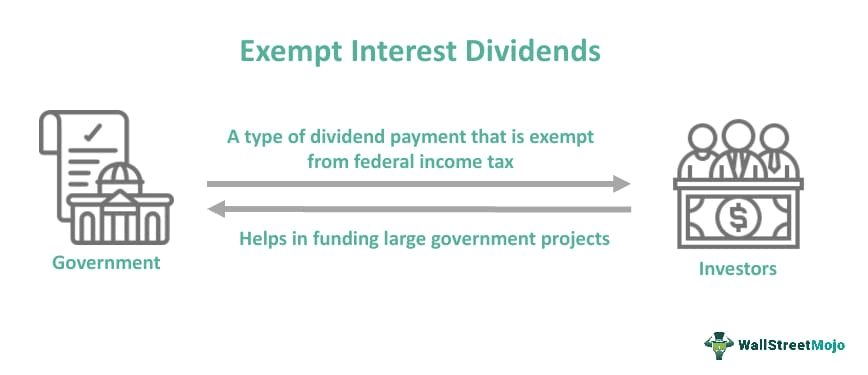Exempt-Interest Dividend Examples and FAQ
An exempt-interest dividend is a type of dividend that is not subject to federal income tax. This means that investors who receive exempt-interest dividends do not have to include them in their taxable income when filing their tax returns. These dividends are typically paid by certain types of investments, such as municipal bonds, which are issued by state and local governments.
Here are some examples of exempt-interest dividends:
1. Municipal Bond Dividends: Municipal bonds are debt securities issued by state and local governments to finance public projects. The interest paid on these bonds is typically exempt from federal income tax, and therefore, the dividends received by investors who hold these bonds are also exempt-interest dividends.
3. Exchange-Traded Funds (ETFs) Dividends: Similar to mutual funds, some ETFs also invest in municipal bonds and distribute tax-exempt dividends to their shareholders. These ETFs can provide investors with exposure to a diversified portfolio of municipal bonds.
Now, let’s answer some frequently asked questions about exempt-interest dividends:
Q: Are exempt-interest dividends taxable at the state level?
A: It depends on the state. While exempt-interest dividends are generally not subject to federal income tax, some states may still tax them. Investors should consult their tax advisors or state tax authorities to determine the tax treatment of exempt-interest dividends in their specific state.
Q: Can exempt-interest dividends be reinvested?
A: Yes, investors can choose to reinvest their exempt-interest dividends by participating in dividend reinvestment plans (DRIPs) offered by their investment providers. This allows investors to automatically reinvest their dividends and potentially compound their returns over time.
Q: Are exempt-interest dividends subject to the alternative minimum tax (AMT)?
A: Exempt-interest dividends are generally not subject to the AMT. The AMT is a separate tax calculation that limits certain deductions and exemptions. However, it’s always a good idea to consult with a tax advisor to understand the specific implications of the AMT on your tax situation.
Q: Are exempt-interest dividends considered qualified dividends?
A: No, exempt-interest dividends are not considered qualified dividends. Qualified dividends are subject to a lower tax rate than ordinary dividends, but exempt-interest dividends are not eligible for this preferential tax treatment.
What are Exempt-Interest Dividends?
Exempt-Interest Dividends are a type of dividend that is exempt from federal income tax. These dividends are typically paid by mutual funds or other investment vehicles that hold tax-exempt securities, such as municipal bonds. The purpose of exempt-interest dividends is to provide investors with income that is not subject to federal taxation.
Exempt-interest dividends are typically paid out on a regular basis, either monthly, quarterly, or annually, depending on the investment vehicle. The amount of the dividend is determined by the income generated by the tax-exempt securities held by the fund or investment vehicle.
Investors who are interested in receiving exempt-interest dividends can invest in mutual funds or other investment vehicles that specialize in tax-exempt securities. These funds can provide a steady stream of income that is not subject to federal income tax, making them an attractive option for investors looking to minimize their tax liability.
Examples of Exempt-Interest Dividends

Exempt-interest dividends are a type of dividend that is not subject to federal income tax. These dividends are typically paid by mutual funds that invest in municipal bonds, which are issued by state and local governments to finance public projects. Municipal bond interest is exempt from federal income tax, and when a mutual fund distributes this interest to its shareholders, it is considered an exempt-interest dividend.
Here are a few examples of exempt-interest dividends:
Example 1:

John is a shareholder of XYZ Municipal Bond Fund. In the previous year, the fund earned $1,000,000 in interest income from its municipal bond investments. The fund distributed $500,000 of this income to its shareholders as exempt-interest dividends. John received $10,000 in exempt-interest dividends from the fund. Since exempt-interest dividends are not subject to federal income tax, John does not have to include this amount in his taxable income.
Example 2:
FAQ about Exempt-Interest Dividends
Exempt-interest dividends are a type of dividend income that is exempt from federal income tax. Here are some frequently asked questions about exempt-interest dividends:
1. What are exempt-interest dividends?
2. How are exempt-interest dividends taxed?
Exempt-interest dividends are not subject to federal income tax. However, they may still be subject to state and local income taxes, depending on the laws of the specific state or locality.
3. Who can receive exempt-interest dividends?
Exempt-interest dividends can be received by any individual or entity that holds shares in a municipal bond fund or other investment that pays these types of dividends. They are often attractive to investors in higher tax brackets who are looking to minimize their tax liability.
4. What are the advantages of exempt-interest dividends?
5. Are exempt-interest dividends considered qualified dividends?
No, exempt-interest dividends are not considered qualified dividends. Qualified dividends are a separate category of dividends that are subject to a lower tax rate. Exempt-interest dividends, on the other hand, are completely exempt from federal income tax.
Investing in Dividend Stocks
Investing in dividend stocks can be a smart strategy for investors looking to generate income from their investments. Dividend stocks are shares of companies that distribute a portion of their profits to shareholders in the form of dividends. These dividends can provide a steady stream of income and potentially grow over time.
When considering dividend stocks, it is important to understand the concept of exempt-interest dividends. Exempt-interest dividends are a type of dividend that is not subject to federal income tax. This can be particularly advantageous for investors in higher tax brackets.
Benefits of Investing in Dividend Stocks
There are several benefits to investing in dividend stocks:
- Income Generation: Dividend stocks can provide a consistent source of income, especially for retirees or those seeking passive income.
- Long-Term Growth Potential: Many dividend-paying companies have a history of increasing their dividend payments over time, which can result in significant growth of income.
- Dividend Reinvestment: Investors can choose to reinvest their dividends back into the company by purchasing additional shares, which can compound their investment over time.
Considerations for Investing in Dividend Stocks
While dividend stocks can be a lucrative investment, there are a few considerations to keep in mind:
- Company Stability: It is important to research and choose companies with a history of stable earnings and a strong financial position.
- Dividend Yield: The dividend yield is the annual dividend payment divided by the stock price. Investors should consider both the current yield and the potential for future increases.
- Dividend Payout Ratio: The dividend payout ratio is the percentage of earnings that a company pays out as dividends. A lower ratio indicates a company that is retaining more earnings for growth.
- Market Conditions: Market conditions can impact the performance of dividend stocks. It is important to consider the overall economic environment and industry trends.

Emily Bibb simplifies finance through bestselling books and articles, bridging complex concepts for everyday understanding. Engaging audiences via social media, she shares insights for financial success. Active in seminars and philanthropy, Bibb aims to create a more financially informed society, driven by her passion for empowering others.
